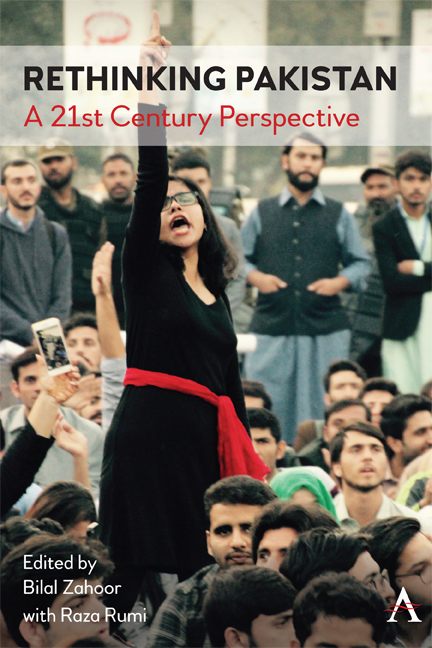Book contents
- Frontmatter
- Dedicated
- Contents
- Acknowledgements
- Introduction
- Part I Identity, Religion and Radicalisation
- Part II Development, Reform and Governance
- Part III Rights, Repression and Resistance
- Part IV Sex, Gender and Emancipation
- Part V Conflict, Diplomacy and Foreign Policy
- Contributors
- Bibliography
- Index
Chapter 19 - Sex and Secularism as Resistance Politics
Published online by Cambridge University Press: 20 January 2022
- Frontmatter
- Dedicated
- Contents
- Acknowledgements
- Introduction
- Part I Identity, Religion and Radicalisation
- Part II Development, Reform and Governance
- Part III Rights, Repression and Resistance
- Part IV Sex, Gender and Emancipation
- Part V Conflict, Diplomacy and Foreign Policy
- Contributors
- Bibliography
- Index
Summary
Two recent events motivated me to write this exploratory piece on sex and secularism in Pakistan. The first was a personal conversation and the second an academic disagreement. Earlier this year, a meeting was called at my house with several generations of women activists who were having public disagreements on the campaigns around sexual harassment and the #MeToo movement. At the end of the intense session, I waited with a young woman at the gate for her Careem to arrive. In my informal but probing queries about being a young single feminist in Karachi, I asked if it was easy for women of her generation to meet men and have relationships. Her response was that not only was it incredibly easy, thanks to Tinder Pakistan, but that the men were often “great guys” and many of them feminists. Sceptical, I asked how they had been “feminised”, and her explanation was that many of them had studied feminism or been exposed to it while studying at Western universities. They had been “broken in”. Candidly and a bit affronted at my ignorance, she explained how sexual relations were quite easy and consummated in friends’ homes or apartments and even hostel accommodation. This was not too different from the time when my generation was growing up and when consensual sex was criminalised under Gen Zia ul Haq's regime (1977–88), but anecdotally, the scale of these encounters has risen and confessing to these is not a standardised cause of shame or taboo.
The second realisation came in response to an academic essay that I had contributed for a forthcoming international edition. I had written about the sexually risqué media star Qandeel Baloch who was murdered by her brother who had claimed his motive to be her compromising of his “honour”. This was challenged by the well-respected editors for overestimating the worth of resistance by women like Qandeel as expressed through their sexpositivity. Both these experiences confirm the need to consider the role of women's sexuality in Pakistan.
In this essay about sex and secularism, I make my case for a broader hypothesis: that just like secular resistance exists in different political forms across the country and challenges the majoritarian Islamic hegemony, so too women's sexualities and associated freedoms are a direct threat to the Islamic gendered order and its patriarchal base.
- Type
- Chapter
- Information
- Rethinking PakistanA 21st Century Perspective, pp. 197 - 208Publisher: Anthem PressPrint publication year: 2020



